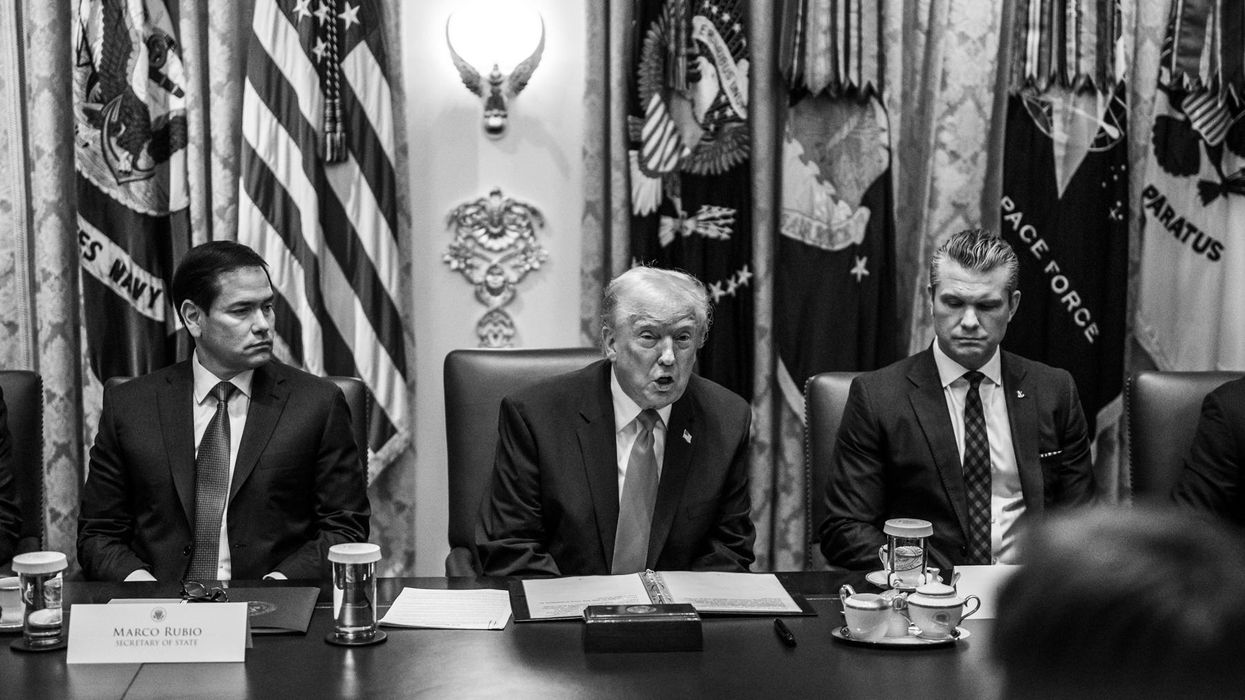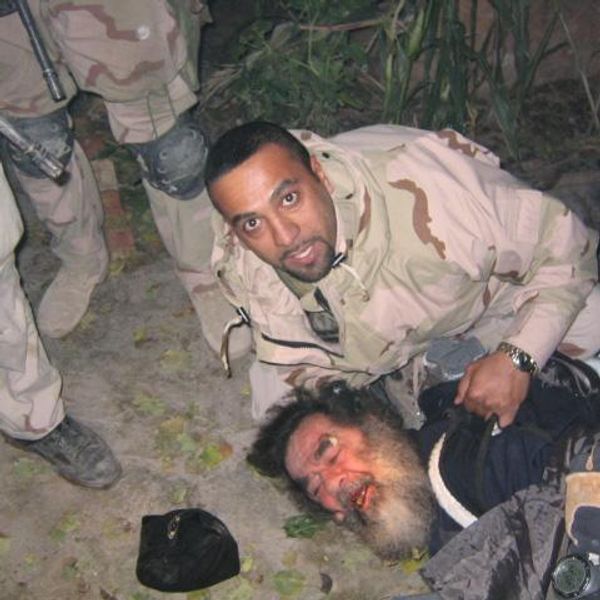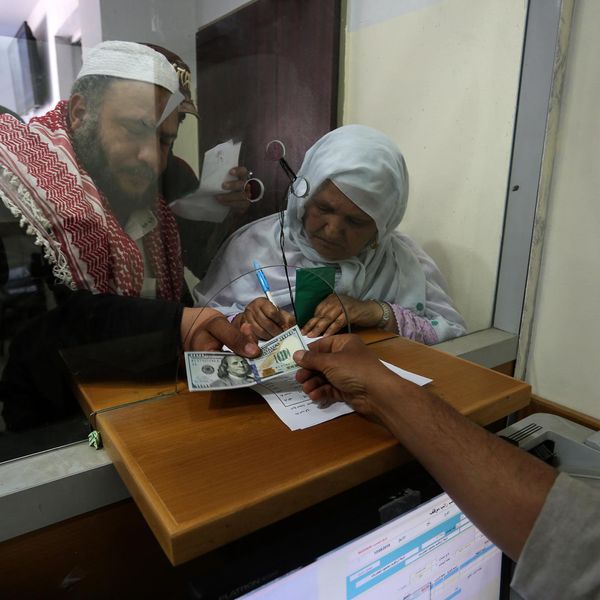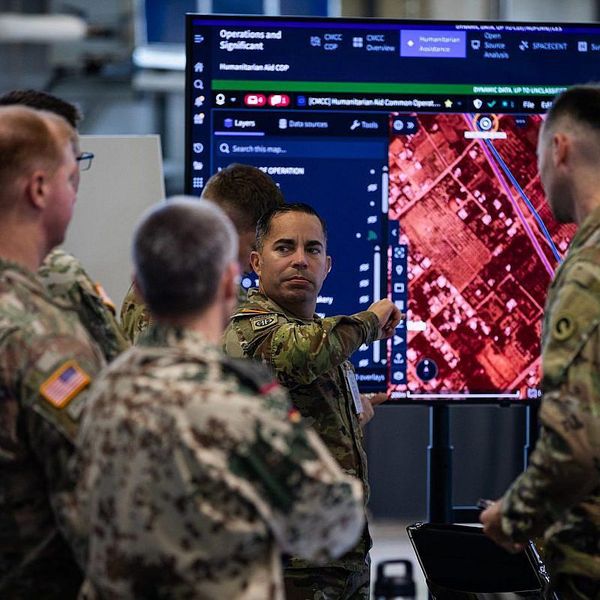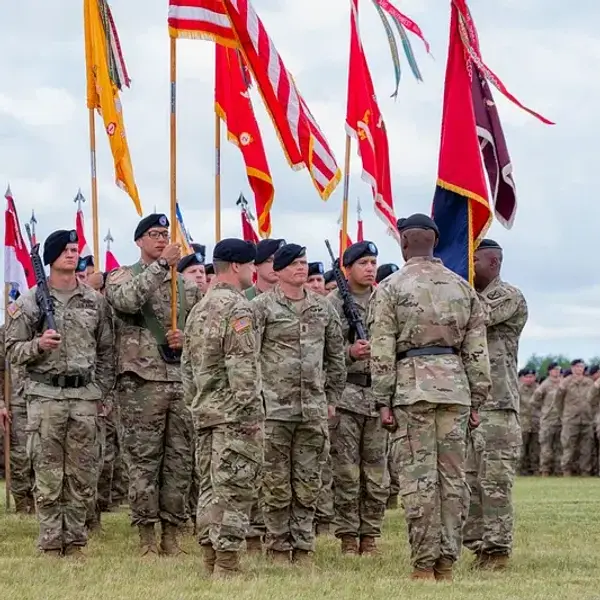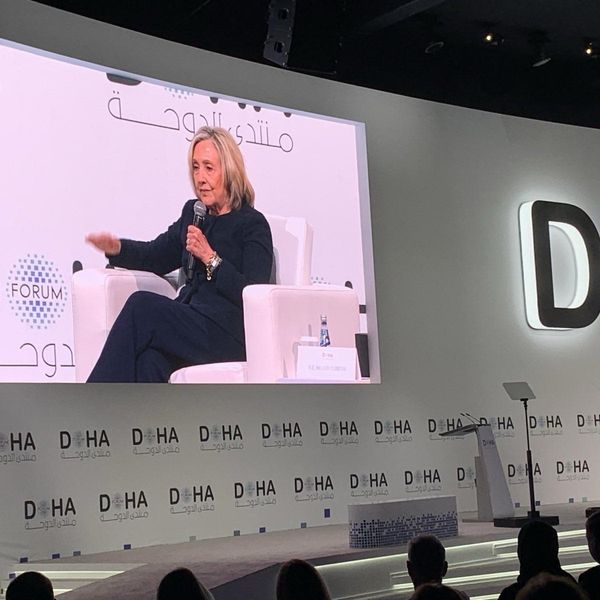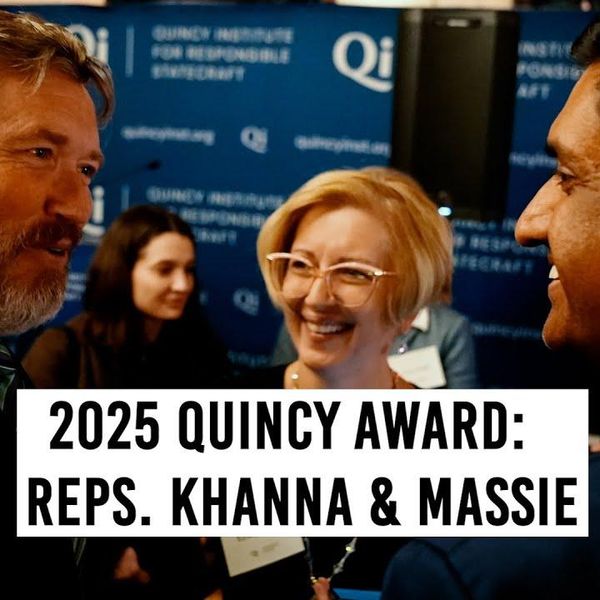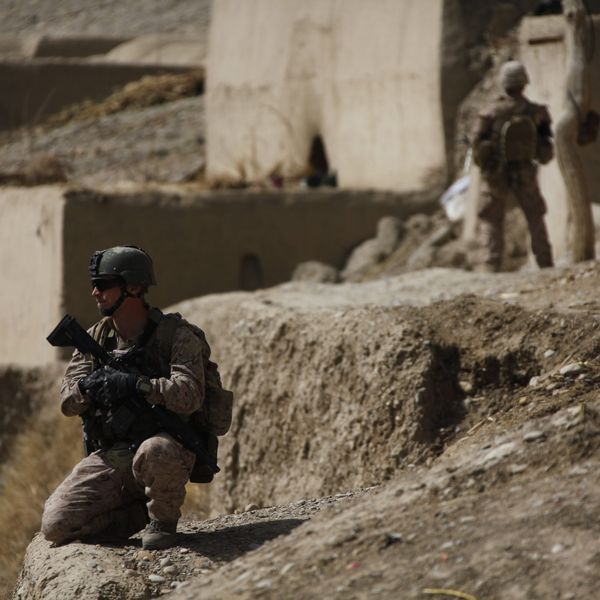A senior Democratic lawmaker recently said that its easier to back Israeli government policy, in many instances at the expense of the Palestinians, because pro-Israel lobbyists have a relatively more influential presence on Capitol Hill.
“The Palestinians have very legitimate claims” and have been “subject to brutal injustice,” Rep. Jim Himes (D-Conn.), ranking member of the House Intelligence Committee, said in a meeting with constituents on October 23. But he added, pro-Israel groups — including J Street and the American Israel Public Affairs Committee (AIPAC) — make many members of Congress reflexively pro-Israel simply because it is “the path of least resistance.”
While polling shows that most Americans consider themselves pro-Israel, their support is not entirely unconditional when it comes to how the Israelis are waging the war against Hamas in Gaza.
A recent survey of likely American voters found that 61% support the call for a ceasefire in the Gaza Strip, where weeks of intense bombing by the Israel Defense Forces have caused widespread devastation. Despite this widespread support, only 14% of the U.S. House of Representatives have come out publicly in favor of a ceasefire.
But pro-Israel groups make significant campaign contributions, visit members of Congress frequently, and pressure them to back the activities of the Israeli government, critics who spoke with RS say.
Rep. Himes held an online meeting to discuss the Israel-Palestine conflict with constituents on October 23, led by the Connecticut chapter of the Council on American-Islamic Relations. According to a recording of the event obtained by Responsible Statecraft, when asked about his tendency to reflexively begin his statements with support for Israel, Himes responded with several answers, one of which addressed the near-constant presence of pro-Israel lobbyists:
"[I]n this office, I get 6-8 visits a year by AIPAC, which is a fairly right-wing pro-Israeli group, and J Street, which is a left-leaning pro-Israeli group. I have never had a visit — never once, I’ve been doing this for 15 years — by a pro-Palestinian group. And again, I’m not criticizing anybody, I’m just sort of explaining the facts as they appear. And I think, therefore, the path of least resistance for an awful lot of members of Congress is to be reflexive the way you were concerned about. And the reason I would love to talk more about that is because, you know, the Palestinians have very legitimate claims, and in times and places have been subject to brutal injustice, and yet there is nobody telling their story."
Himes pointed to the influence of AIPAC to help explain the lopsided support for Israel in congress:
"AIPAC has been doing this for 60 years. They come in and they sit in the office, and they say, you know, 'Here’s three things that we would really like you to consider doing, are you going to do it?' And I’m not saying AIPAC is good or bad, I’m just saying that I know what is effective in educating members of Congress, and honestly it breaks my heart that there isn’t a Palestinian group that comes in and says, 'Look, let us tell you what our aspirations are, let us tell you some stories, let us tell you what the settlers are doing outside of, you know, Ramallah.'"
“I'd be curious to know what he means by ‘path of least resistance,’” Foundation for Middle East Peace President Lara Friedman told Responsible Statecraft. “Does he mean, ‘this is the path that gets me rewarded in terms of campaign support,’ or, on the other hand, ‘how I avoid other possible negative consequences like someone giving massive support to my primary opponent?’"
Rep. Himes has not traditionally received much financial support from pro-Israel groups. However, last year saw the most campaign spending by pro-Israel donors of any congressional cycle in the last 30 years. Amid this wave of money, the largest contributor to Himes’ campaign committee in 2022 was AIPAC. The group has recently clashed publicly with several critics in Congress, ranging from Rep. Mark Pocan (D-Wisc.) to Rep. Thomas Massie (R-Ky.). Next year, AIPAC-affiliated groups are expected to spend upwards of $100 million on primary elections in an effort to oust Democratic lawmakers they view are insufficiently supportive of Israel or too vocal about Palestinian rights.
The influence of this campaign spending is well-known among congressional insiders. “Any member of Congress knows that AIPAC is associated indirectly with significant amounts of campaign spending if you’re with them, and significant amounts against you if you’re not with them,” former Rep. Brian Baird (D-Wash.) told The New Yorker in 2014. “When key votes are cast, the question on the House floor, troublingly, is often not ‘What is the right thing to do for the United States of America?’ but ‘How is AIPAC going to score this’”?
In his congressional votes and public statements, Rep. Himes has charted a course in between his party’s biggest supporters and biggest critics of Israel. He explained during the Oct. 23 meeting his reasons for not supporting the calls for a lasting ceasefire. “Unless somebody can convince me that there is an alternative mechanism for bringing these terrorists that perpetrated this grave, grave crime against Israel… to justice, I will not do that,” Himes said in reference to Hamas’s attacks on October 7. Yet the congressman also opposed the move to censure Rep. Rashida Tlaib (D-Mich.) for her advocacy on the issue.
“My theme has been two-fold,” said Himes, “which is that we will support Israel in the face of this disgusting attack, and number two, that we need to make sure that the Israeli response is moderated, that they abide by the laws of armed conflict, that they come off of their rhetoric of leveling Gaza, of a siege, and that everything be done with an eye towards what is right from a humanitarian standpoint.”
The eight-term congressman attended Israeli Prime Minister Benjamin Netanyahu’s speech to a joint session of Congress in 2015 where he bashed President Obama’s diplomacy with Iran and received a standing ovation. But Rep. Himes had harsh words for the controversial leader during the Oct. 23 constituent meeting.
“This problem will not go away until there is a two-state solution,” he said. “Very sadly, the current Israeli prime minister has been doing pretty much everything he can to make that an impossibility. And, of course, that’s a part of the reason why the rage and anger rose to the levels that it did” prior to Hamas’s Oct. 7 attacks.
More than two months after the attacks, members of Congress are increasingly voicing concern about Israel’s bombardment of Gaza and President Biden called Israel’s bombing campaign “indiscriminate,” positions that appear to have become more acceptable weeks after the call in which Himes referred to pro-Israel positions as the “path of least resistance.”
Friedman credits that shift, at least partially, to growing engagement by voters concerned about the civilian death toll in Gaza.
“Constituent engagement matters, especially since the Gaza war started,” said Friedman. “Members are now talking about ceasefire and other things we didn't hear in the first few weeks. Members are starting to show a bit more empathy and concern for what is happening in Gaza.”
Rep. Himes’ office did not respond to requests for comment.




